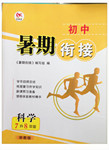题目内容
The Internet is a way of life for US college students, with research showing them to be one of the most connected groups.
A recent study by Harris Interactive and 360 Youth found that 93 percent of American college students visit the Internet, and this market is expected to grow from 15.2 million in 2003 to 16.4 million in2007.
That is slow but could be the result of the already high number of college Internet users.
About 88 percent of American college students own a computer, and more than half have broadband connections. Furthermore, 76 percent own cell phones and 36 percent use their mobile devices to visit the Internet.
Study findings are that 42 percent go online mainly to communicate socially, and 72 percent of college students check emails at least once a day, with 66 percent using at least two email addresses.
The most popular online social activity is forwarding messages to friends or family, with 37 per cent of college students saying they do so.
The study also looked beyond the Internet surfing habits and into the buying habits of this group, and found them responsible for more than US$210 billion in sales last year alone.
College students have learned how to spend their money, with 93 per cent saying low prices were important when shopping.
The study also showed that 65 percent make loan payments, 41 percent of freshmen have a credit card; and 79 percent of seniors have a credit card.
A significant number of charges on those credit cards are likely to be for entertainment and leisure expenses.
45. College students in the US, as this passage shows, _______
A. don’t have to learn their lessons in their classroom
B. spend too much time visiting the Internet
C. lead an exciting life by visiting the Internet
D. waste much time visiting the Internet
46. From the fourth paragraph we can find that in the US_______.
A. most college students are from rich families
B. college students can have a computer from their college
C. cell phones will take the place of computers in college
D. mobile phones make Internet life easy for college students
47. To communicate with friends, nearly half of the college students use_______
A. letters B. e-mails C. telephones D. telegraph
48. By using the Internet, college students in the US can do the following except _______.
A. reading newspapers B. chatting with friends
C. buying goods D. going swimming
45—48 CDBD
略

练习册系列答案
 初中暑期衔接系列答案
初中暑期衔接系列答案
相关题目

 that need to be 52 ? Are you discovering that you don’t have 53 it tak
that need to be 52 ? Are you discovering that you don’t have 53 it tak es to lift them? There is someone who is willing to give us the 54 we need. Maybe, it’s sometimes a good idea to ask others for 55 when we meet difficulties we can’t overcome.
es to lift them? There is someone who is willing to give us the 54 we need. Maybe, it’s sometimes a good idea to ask others for 55 when we meet difficulties we can’t overcome. cycles B. heights and depths
cycles B. heights and depths